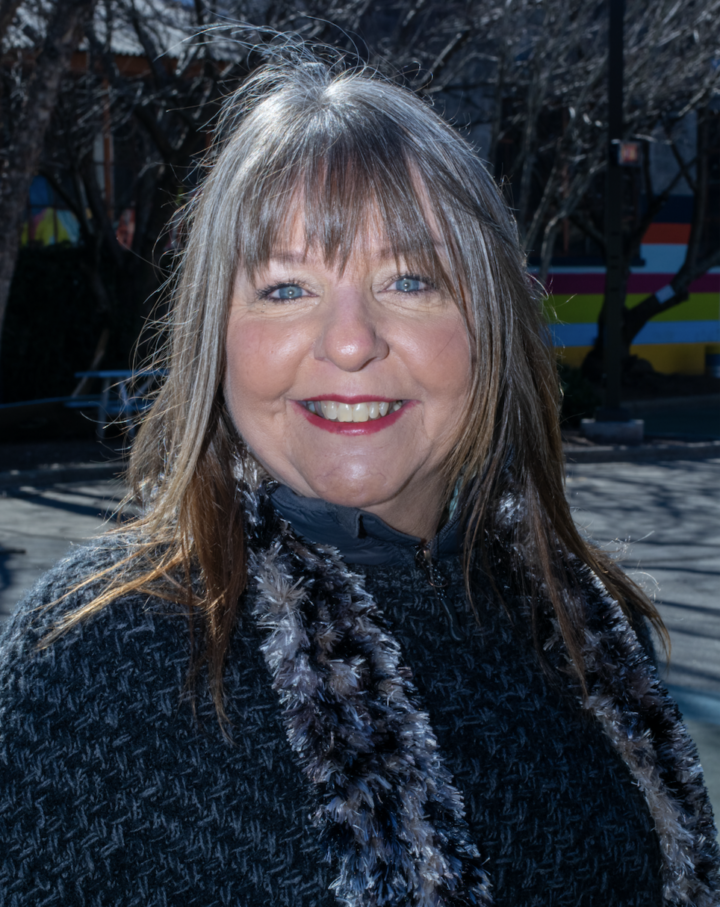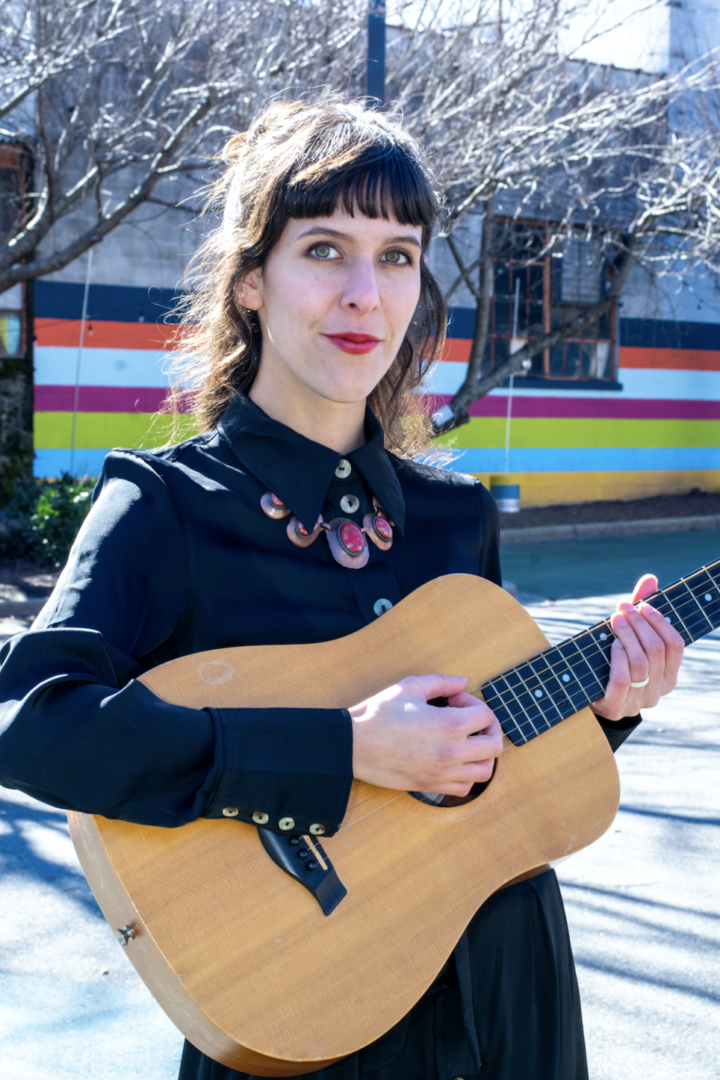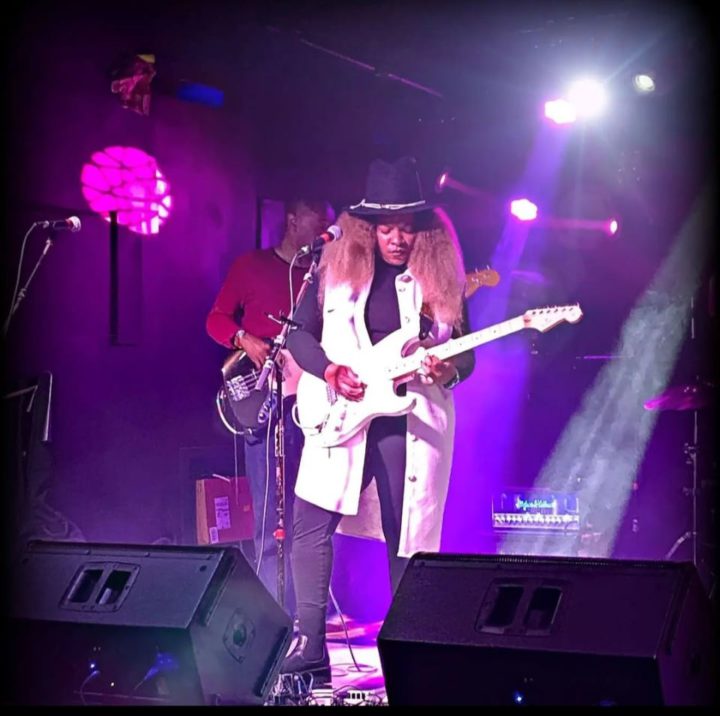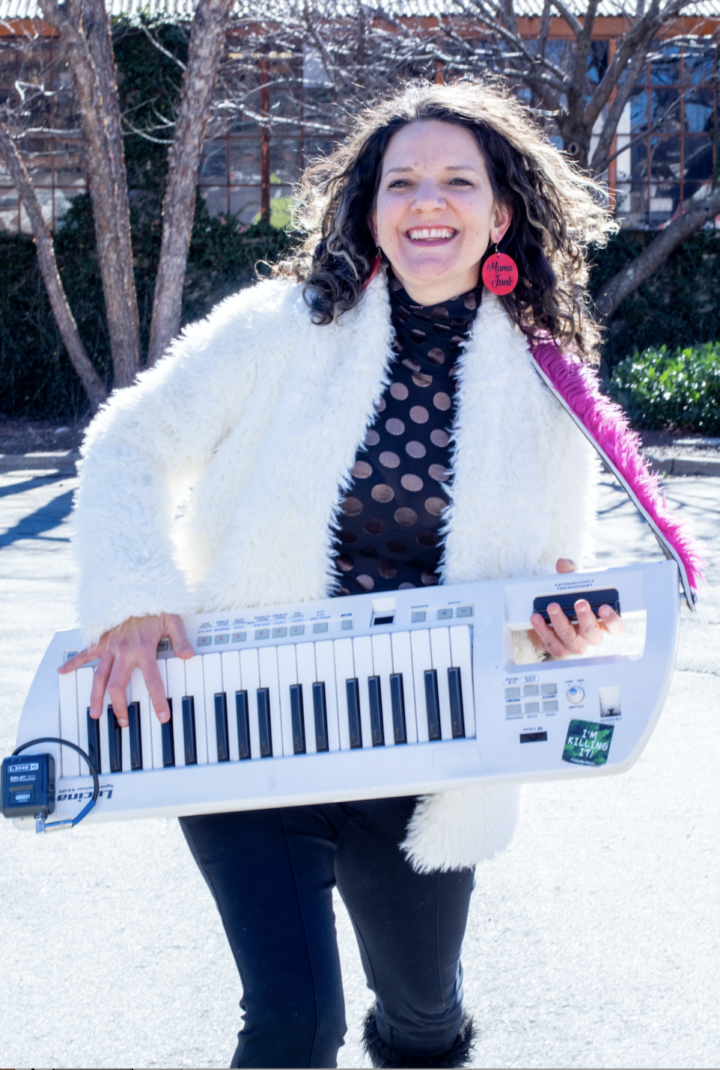When loading into a music venue, keyboardist and vocalist Mary Frances (aka “Mama Funk”), has often been mistaken for the person selling merchandise or the girlfriend of a band member. In fact, the Asheville-based musician has long been an integral part of musical acts Yo Mama’s Big Fat Booty Band, Eymarel and Electro Lust.
But she doesn’t take the oversight personally. “I see it as a challenge,” she says. “I transform into my [stage] outfit and rock out, and it’s a whole different energy after the show. … I find creative strength in it.”
It’s no secret that women in the music industry have faced adversity, misogyny, fewer opportunities and less recognition than their male counterparts. But that hasn’t stopped female-identifying creatives from carving out niches on stages, playlists and within all facets of the music scene.
Opportunity cost
In 2018, the LEAF Festival took on the challenge issued by the national campaign 2020 Women on Boards, which sought to increase the percentage of women serving on U.S. company boards to 20% by 2020. Two years ahead of schedule, LEAF featured more than 20% women-led acts, including its headliners and the entire Friday main stage schedule. Unfortunately, since 2020, COVID’s impact on festivals has made it difficult to track gender equity when it comes to performer lineups. But unequal representation has been an issue for decades, says local blues musician Peggy Ratusz.

A 2017 survey conducted by Pitchfork attests to Ratusz’s observation. According to the online music publication, of the 996 acts that took the stage at large music events that year, only 14% were female-based, with an additional 12% representing groups with male and female (or nonbinary) members. A subsequent survey found that the number of female acts increased by 5 percentage points in 2018.
A common refrain for this disparity, notes Ratusz, is that women don’t vie for festival slots and gigs. “That’s bullshit,” she contests. “They do vie.”
And Ratusz knows: Her career as a performer spans decades, and she’s also worked as a talent booker. In the latter role, she hoped to impact the gender gap by booking women-led acts but received pushback from her employer.
Festival flyers, media coverage, gig opportunities — all can be discouraging metrics by which to measure the progress of women’s roles in the music industry. But it’s not all bad news, local musicians point out.
“When I was starting out as a senior in high school, one theater teacher took notice of me and asked me to be the solo musician for a string of performances in an ensemble play … at a theater in uptown Charlotte,” remembers folk-pop artist Carly Taich. “I created a live soundtrack for the entire show with just my guitar and voice. I even wrote a song for the last scene of the play, which the entire cast sang with me. It was an emotional and encouraging experience.”
Today, Taich is an established voice in the Asheville music scene. Her 2020 EP It Tends to Glow was featured by NPR and American Songwriter and, among other awards, she won the 2018 LEAF Singer-Songwriter Competition. She’s just released the single “Fly” (available on major streaming platforms), which she describes as a “song about the risk of letting yourself fall in love.”
Get it tight, keep it tight

Taich, who has been performing now for a dozen years, points to an early opportunity as a key element to her continued momentum. At 14, she received a full scholarship to a music industry summer program for teens. “Surrounded by musicians and learning from industry professionals in Los Angeles, a whole world opened up for me that I didn’t know existed,” she remembers. “After that, I dove headfirst into songwriting, started taking voice lessons and never looked back.”
But, despite early encouragement and support, Taich (as well as Frances and Ratusz) has never had a female mentor in the industry.
Taich says she takes inspiration from artists such as Sia, who “completely stopped showing her face during public performances, which was a big risk in an industry that so heavily focuses on image.”
Other local musicians, such as vocalist and guitarist Leeda “Lyric” Jones, have had the privilege of female-identifying mentors, and Jones includes Asheville-based luminaries Lizz Wright, Kat Williams and the late Ruby Mayfield among them. Early in Jones’ career, Wright heard her band busking, attended one of the group’s shows and invited Jones to open for her on a Northeast tour. “She showed me a lot as far as not being afraid to voice my opinion to the band,” Jones says. “How to get everything tight and to keep it tight.”
Meanwhile, Ratusz’s response to the male-dominated field was “to be the CEO of me and make things happen for myself.” Among other initiatives, she curated a Christmas variety show at Isis Music Hall & Kitchen 743 for nearly a decade. “It was an opportunity to shine a light on men and women [performers] and, as a person of age, to remain viable,” she says. Her current project, Asheville Sessions, is in collaboration with guitarist Jonathan Pearlman and invites local vocalists to perform weekly at Isis.
Pros and cons

No matter the ingenuity of the musician in question, there are still major pain points when it comes to being a female-identified person in the music business. “Being sexualized is No. 1,” Taich says. “Though I don’t know what it’s like to be a male in the industry, I think women get pigeonholed more easily and have the added job of shattering expectations.”
At the same time, confidence in one’s sexuality is another component for some within the scene. “I want to be seen as a musician first,” says Frances, who has explored her sexuality in onstage performances. “But I think [music and sexuality] can work together.”
Collaborating with male musicians also brings unique opportunities and challenges. Frances’ career evolved with her husband, the drummer Lee Allen, with whom she formed the duo Eymarel while she was finishing her degree in music therapy at Appalachian State University. She and Allen later joined the Booty Band together.
“We give each other strength,” she says.
But even touring with a supportive group of guys can be lonely as the sole woman in the band. “So I’ve made girlfriends all over the country to grab a coffee with,” Frances says.
Meanwhile, Jones’ father, Dave Matthews — also a native Ashevillean and longtime member of the local music scene — has been part of her band since 2009. (Matthews played Asheville’s first Bele Chere festival in 1979; he and Jones performed the final iteration of Bele Chere, in 2013, together.)
As far as having his daughter’s back in venues and on the road, “He wasn’t going to let certain things happen,” Jones says.
The world needs your art

But Jones has still dealt with plenty of difficulty. “One of the biggest challenges I’ve faced as a Black woman was being taken seriously and not being taken advantage of,” she says. Jones first played in a band while a student at Western Carolina University and began to make a name for herself in Asheville as a young artist. “I was raised to know better than to settle,” she continues. “I had to command respect for myself and my band.”
Taich also admits she’s had to work hard to become someone who is decisive and doesn’t just hand her art over to those who exude more confidence. “I think it’s very common for women to [feel] like they’re being walked all over,” she says. “That their opinions don’t matter, or that they have to work extra hard to be heard or taken seriously.”
Taich offers this advice to up-and-coming women performers: “The world needs your art and your voice.”
She adds, “Keep going and don’t be afraid to take charge of your career. Don’t fall prey to Cinderella syndrome, waiting for a key holder in the industry to one day discover you and sweep you off your feet.”




Before you comment
The comments section is here to provide a platform for civil dialogue on the issues we face together as a local community. Xpress is committed to offering this platform for all voices, but when the tone of the discussion gets nasty or strays off topic, we believe many people choose not to participate. Xpress editors are determined to moderate comments to ensure a constructive interchange is maintained. All comments judged not to be in keeping with the spirit of civil discourse will be removed and repeat violators will be banned. See here for our terms of service. Thank you for being part of this effort to promote respectful discussion.